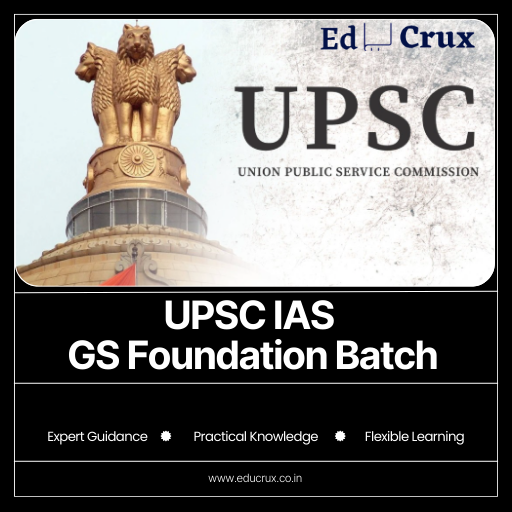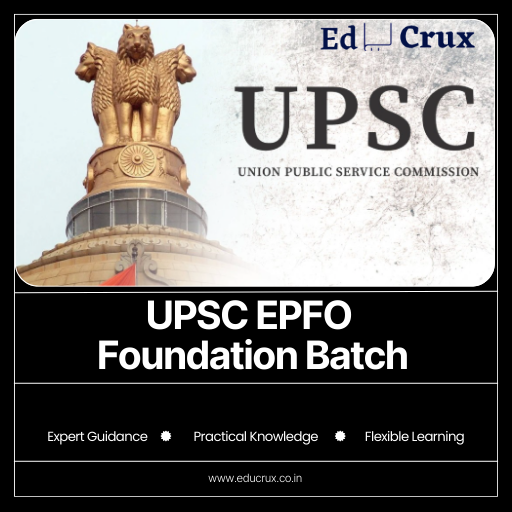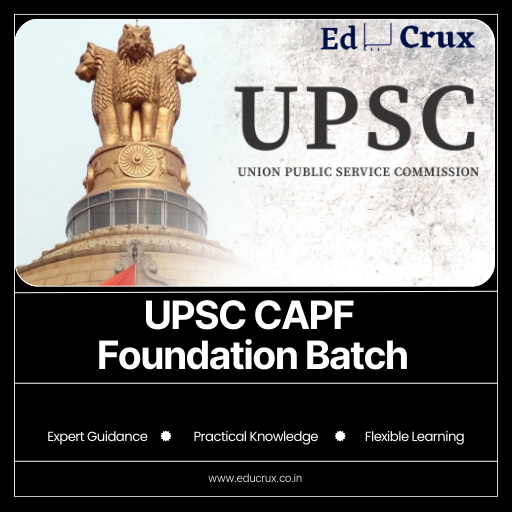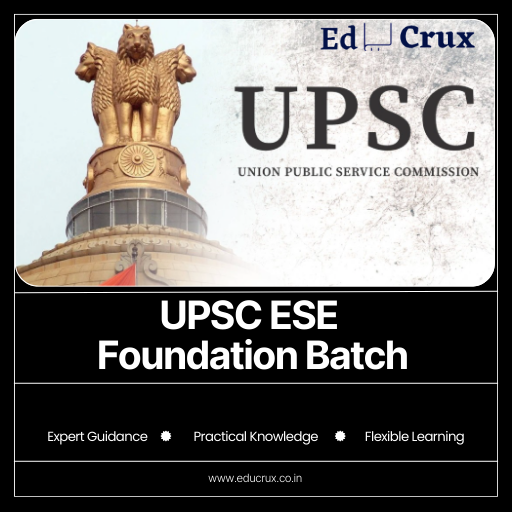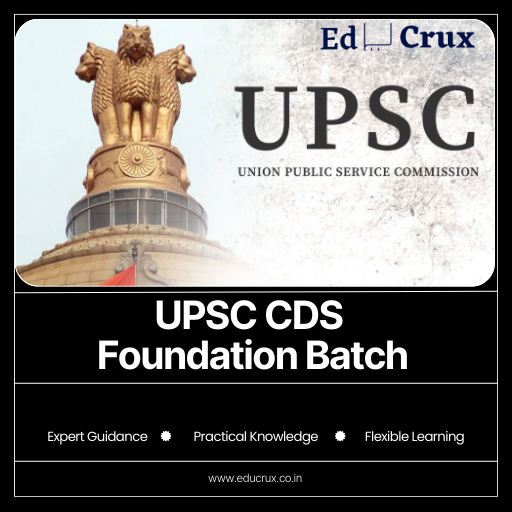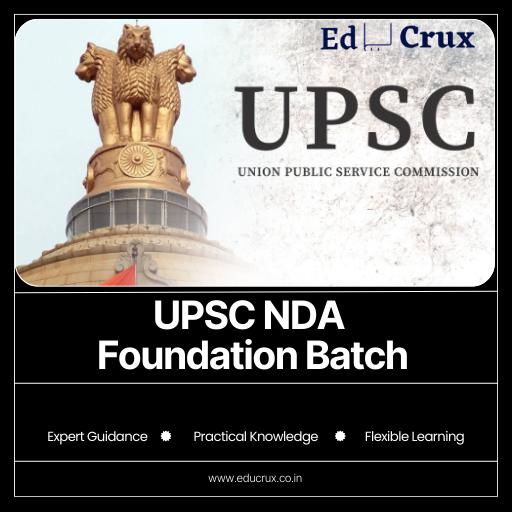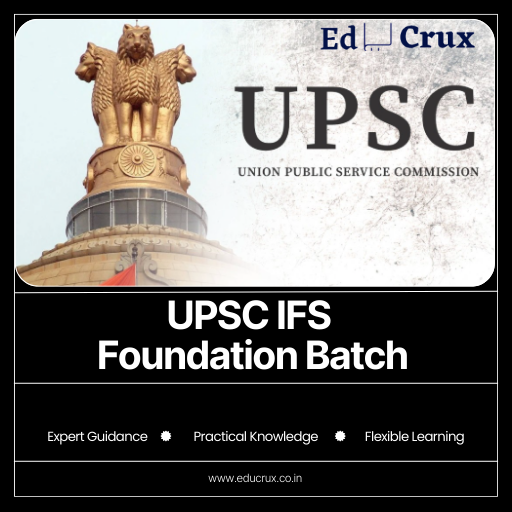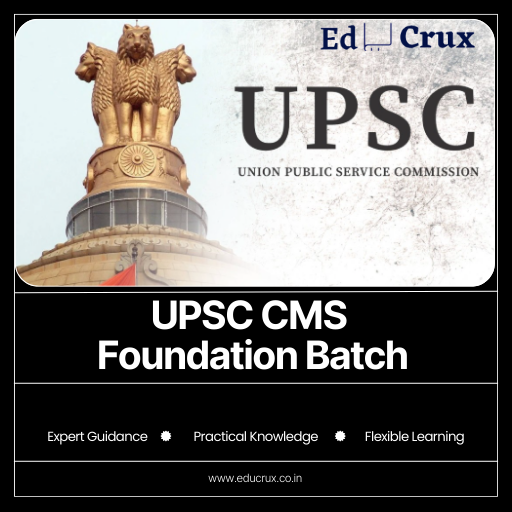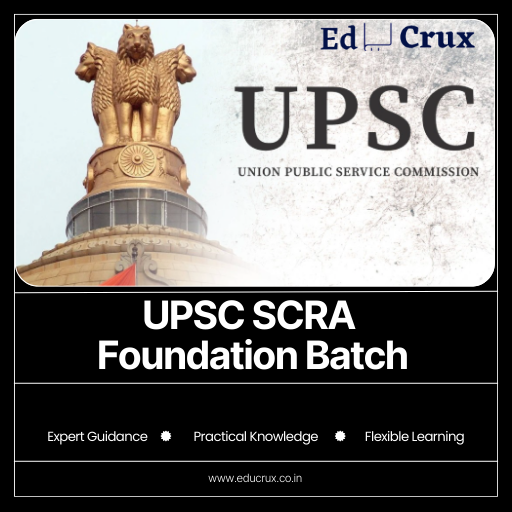What is UPSC?
UPSC (Union Public Service Commission) is India’s central recruiting agency, which is responsible for conducting various prestigious examinations for civil services and other government positions. It operates under the Government of India and selects candidates for All India Services, Central Services, and Defence Services.
Major Exams Conducted by UPSC
- Civil Services Examination (CSE) – Includes IAS, IPS, IFS, IRS, etc.
- Engineering Services Examination (ESE/IES) – For engineering graduates in government departments.
- Combined Defence Services (CDS) Exam – For recruitment into the Indian Army, Navy, and Air Force.
- National Defence Academy (NDA) Exam – For students joining NDA after Class 12.
- Indian Forest Service (IFS) Examination – For forest officers.
- Combined Medical Services (CMS) Exam – For medical professionals in government services.
- CAPF (Assistant Commandants) Exam – For recruitment in paramilitary forces.
- Special Class Railway Apprentice (SCRA) Exam – For railway recruitment (currently discontinued).
How to Start UPSC Preparation from Zero?
UPSC preparation requires a strategic approach, consistency, and patience. Follow these steps to begin your journey effectively:
Step 1: Understand the UPSC Exam Pattern
📌 Preliminary Exam (Prelims)
- General Studies Paper-I (Current affairs, History, Polity, Geography, Science, Economy, etc.)
- CSAT Paper-II (Aptitude, Logical reasoning, Comprehension) – Qualifying in nature
📌 Mains Examination (9 Papers – Essay & Descriptive)
- Compulsory Papers: Essay, Indian Language, English
- General Studies: GS-I, GS-II, GS-III, GS-IV (Ethics)
- Optional Subject: (Choose 1 from subjects like History, Geography, Public Administration, etc.)
📌 Interview (Personality Test)
- Face-to-face discussion with UPSC Board
Step 2: Get Familiar with the Syllabus
🔗 Download the official UPSC syllabus and read it carefully. It will help you focus on important topics and avoid unnecessary study.
📌 Pro Tip: Keep the syllabus printed and refer to it regularly.
Step 3: Start with NCERTs (Basic Foundation)
📚 Read NCERT books (Class 6-12) for:
✔ History – NCERT (Class 6-12) + Tamil Nadu History Book
✔ Geography – NCERT (Class 6-12) + G.C. Leong + Atlas
✔ Polity – NCERT + Laxmikanth (Indian Polity)
✔ Economy – NCERT + Ramesh Singh (or Sriram IAS Notes)
✔ Science & Tech – NCERTs + Current Affairs
📌 Pro Tip: Make short notes for quick revision.
Step 4: Read Standard Reference Books
📚 Recommended Books for UPSC:
- History: Spectrum (Modern India), Nitin Singhania (Art & Culture)
- Polity: M. Laxmikanth
- Geography: G.C. Leong, Oxford Atlas
- Economy: Ramesh Singh or Sriram IAS Notes
- Environment: Shankar IAS Notes
- Ethics (GS-IV): Lexicon or Subba Rao
📌 Tip: Don’t buy all books at once. Start with NCERTs and then move to advanced books.
Step 5: Read The Hindu or Indian Express (Daily Newspaper)
📌 Focus on:
- Government Schemes & Policies
- Supreme Court & High Court Judgments
- International Relations
- Economic Policies & Reports
📌 Supplements: PIB (Press Information Bureau), Yojana & Kurukshetra Magazines
Step 6: Practice Answer Writing (For Mains)
- Start daily answer writing practice (even if you’re a beginner).
- Join Mains Test Series after completing NCERTs.
📌 Pro Tip: Use PYQs (Previous Year Questions) to understand the answer format.
Step 7: Solve Previous Year Papers & Take Mock Tests
- Solve UPSC PYQs (Last 10 Years) to understand question trends.
- Take full-length mock tests for Prelims & Mains.
📌 Best Test Series Platforms:
✔ Educrux IAS (Prelims & Mains)
Step 8: Choose an Optional Subject Wisely
- Pick an optional subject based on interest & scoring trends.
- Popular optionals: History, Geography, PSIR (Political Science), Anthropology, Sociology, Public Administration, Maths.
📌 Tip: Check the syllabus and previous year’s questions before finalizing.
Step 9: Join a Good Mentorship Program (Optional)
- Coaching is not mandatory but helps in structured preparation.
- Best Online Coaching: Educrux IAS
📌 Tip: Self-study + mentorship is the best approach.
Step 10: Maintain Consistency & Revision
- Daily Study Plan (6-8 hours initially, increase later)
- Weekly & Monthly Revision
- Stay Motivated & Follow a Healthy Routine
📌 Golden Rule: Read – Revise – Practice – Repeat
🚀 Final Strategy (Beginner’s Timeline)
📅 First 3 Months – NCERTs + Daily Newspaper
📅 Next 3 Months – Standard Books + Notes Making
📅 Next 6 Months – Mains Answer Writing + Optional Subject
📅 Final 3 Months – Full Revision + Mock Tests
Best Books for UPSC Preparation (Prelims + Mains)
For the UPSC Civil Services Examination (CSE), you need NCERTs for basics and standard reference books for in-depth understanding. Here’s a subject-wise booklist to help you prepare effectively:
📌 1. NCERT Books (Basic Foundation)
Start with NCERTs (Class 6-12) for conceptual clarity.
- History – Class 6-12 NCERTs
- Geography – Class 6-12 NCERTs
- Polity – Class 9-12 NCERTs
- Economy – Class 9-12 NCERTs
- Science & Tech – Class 6-10 NCERTs
- Environment – Class 12 Biology (Last 5 Chapters)
📌 Tip: First read NCERTs twice, then move to standard books.
Best Books for UPSC Prelims & Mains
🟢 History
✔ Ancient & Medieval History:
- NCERT Class 11 & 12
- Tamil Nadu History Book (Class 11 & 12)
- R.S. Sharma – Ancient India (for deeper understanding)
✔ Modern Indian History:
- Spectrum – A Brief History of Modern India (Most recommended)
- Bipan Chandra – India’s Struggle for Independence (For Mains)
✔ Art & Culture:
- Nitin Singhania – Indian Art & Culture
- NCERT Class 11 Fine Arts
🔵 Indian Polity & Governance
✔ Best Book:
- M. Laxmikanth – Indian Polity (Most recommended)
- DD Basu – Introduction to the Constitution of India (For deep understanding)
- NCERT Class 11 – Indian Constitution at Work
📌 Tip: Laxmikanth is a must-read for UPSC aspirants.
🟠 Geography
✔ Best Books:
- NCERT Class 6-12 (Fundamentals of Geography)
- G.C. Leong – Certificate Physical & Human Geography
- Oxford Atlas / Orient BlackSwan Atlas (For map practice)
- Majid Hussain – Indian & World Geography (For Mains)
📌 Tip: Practice map-based questions (Rivers, National Parks, Mountain Ranges).
🟣 Indian Economy
✔ Best Books:
- NCERT Class 11 & 12 Economics
- Ramesh Singh – Indian Economy (Best for conceptual clarity)
- Sriram IAS Economy Notes (Concise & updated)
- Economic Survey & Union Budget (Latest Edition)
- NITI Aayog Reports
📌 Tip: Focus on Current Economic Issues from newspapers & PIB.
🟢 Environment & Ecology
✔ Best Books:
- Shankar IAS – Environment (Highly recommended)
- NCERT Class 12 Biology (Last 5 chapters)
- Current Affairs (PIB, The Hindu, Yojana, Down To Earth Magazine)
📌 Tip: Link environment topics with current affairs (Climate Change, Biodiversity, etc.).
🔴 Science & Technology
✔ Best Books:
- NCERT Class 6-10 Science
- Science Reporter Magazine
- Current Affairs (The Hindu, PIB, Yojana, ISRO/NASA Updates)
📌 Tip: No need for deep theoretical knowledge, focus on applied science & latest technologies.
🔵 Ethics, Integrity & Aptitude (GS Paper IV – Mains)
✔ Best Books:
- Lexicon for Ethics, Integrity & Aptitude
- Subba Rao – Ethics, Integrity & Aptitude
- ARC Report (Ethics in Governance)
📌 Tip: Solve case studies regularly.
🟠 General Studies (For Essay & Current Affairs)
✔ Best Sources:
- The Hindu / The Indian Express (Daily Newspaper)
- PIB (Press Information Bureau)
- Yojana & Kurukshetra Magazines
- Manorama Yearbook
- India Yearbook (Ministry of Information & Broadcasting)
📌 Tip: Make short notes for quick revision.
📌 3. Best Books for UPSC Optional Subjects
🔹 History: Bipan Chandra, R.S. Sharma, Satish Chandra
🔹 Geography: Majid Hussain, Savindra Singh
🔹 Public Administration: M. Laxmikanth, Fadia & Fadia
🔹 Political Science & IR: Andrew Heywood, M. Laxmikanth
🔹 Anthropology: Ember & Ember, Nadeem Hasnain
🔹 Sociology: Haralambos & Holborn, IGNOU Notes
📌 Tip: Choose an optional subject based on interest & scoring potential.
📌 4. Previous Year Papers & Mock Tests
✔ UPSC Prelims & Mains Previous Year Papers (Last 10 Years)
✔ Educrux IAS Mock Tests
✔ CSAT Paper-II – RS Aggarwal (Quantitative Aptitude)
📌 Tip: Solve PYQs regularly to understand the exam pattern.
